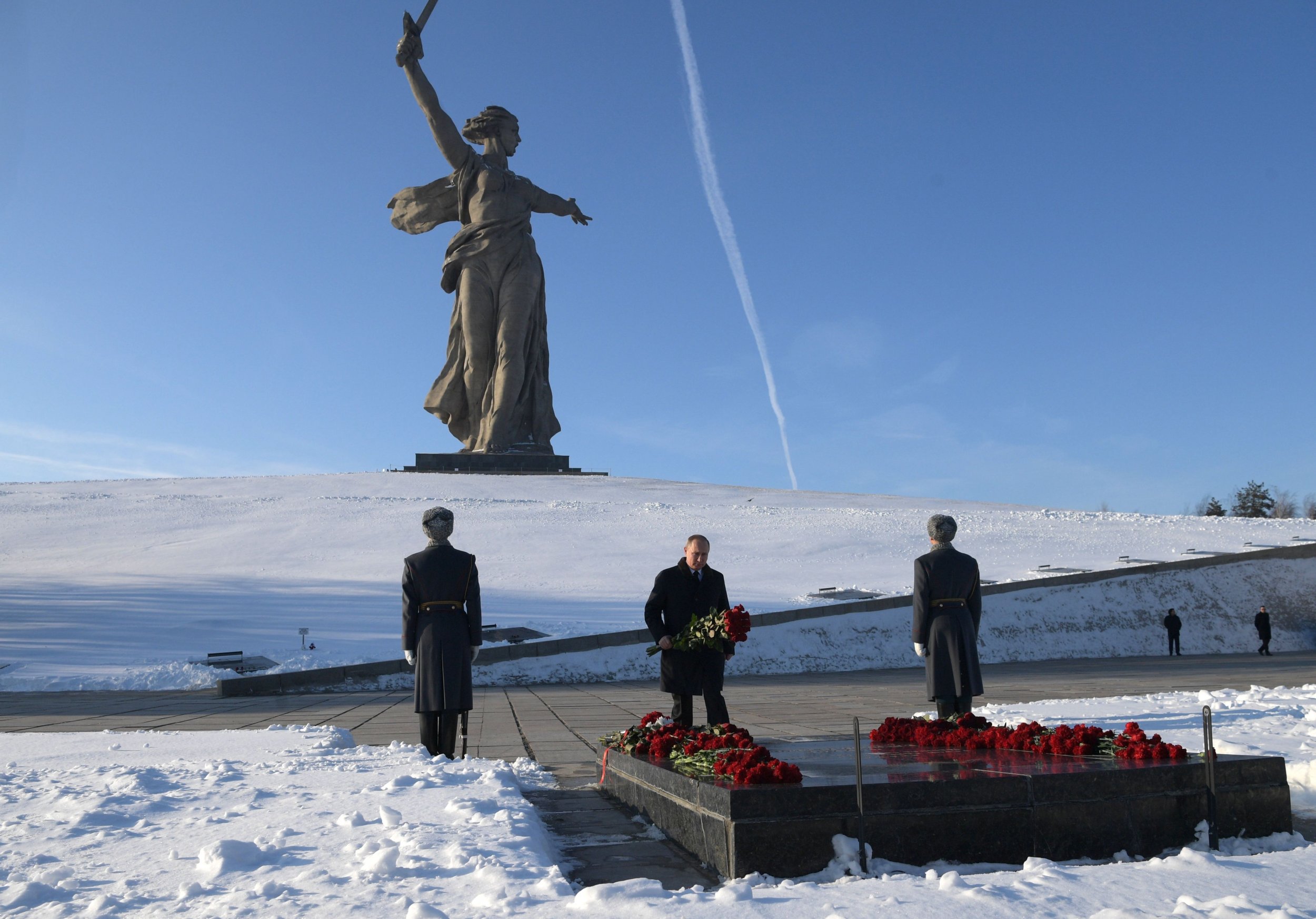
As the Nazi blitzkreig pushed deep into the Soviet Union during the summer of 1942, Joseph Stalin ordered that in Stalingrad, the city that bore his name, the Red Army end its retreat and mount a resistance that could sway the fate of both armies.
Hundreds of thousands of German soldiers marched into the industrial city, backed by other Axis forces and supported from the air by Luftwaffe bombers. What followed were five months of the fiercest fighting between the two armies, stuck in brutal, close quarters combat in temperatures that soon dropped well below freezing. In addition to bombs and bullets, the threat of illness, starvation and frostbite hung heavy in the air.
When the battle ended, on February 2, as many as 2 million were dead on both sides, and Stalingrad was a battered shell of a city. But it also marked the first major German defeat, the moment the tide began to turn against the Nazis, and the beginning of a campaign that would eventually see the Soviets march all the way to Berlin.
Seventy-five years later, Stalingrad retains a near-sacred status in Russian life, where decades of Soviet propaganda have fed from memories of the dogged battle on the banks of the Volga. Even if the city's name has changed—to Volgograd, under Nikita Krushchev's de-Stalinization campaign in the late 1950s—its cemetery is filled with those who fell, while the shelled ruins of buildings remain a reminder of the past.
Related: Near the North Korean Border, Russian Marines Begin Sniper and Grenade Launcher Drill
Under Russian President Vladimir Putin, the significance of Stalingrad—and World War II in general—has only grown greater. At a time where Moscow's relations with the U.S. and the EU are at their worst since the Cold War, Putin's government has leaned heavily on memories of a time when Russia was under siege from the West and its future was in the hands of a tough-talking strongman.
Victory in Europe Day, which marks the end of hostilities in Europe in 1945, has become Russia's second biggest national holiday, commemorated with military rallies and speeches as it was in the days of the Soviet Union. The veneration of the conflict has reached such levels in recent years that many Russians today believe the Red Army was on course to defeat Nazi Germany, with or without the efforts of the United States, Great Britain and their allies.
World War II nostalgia has served to embolden the reputation of Stalin, whose role in beating Hitler is seen as more significant to many Russians than his forced deportations and executions of millions of their own ancestors. This year, Volgograd will even revert to its original name, Stalingrad, reviving its Soviet-era honor as a "hero city."
On February 2, around 50 aircraft from Russia's air force, including its most famous aerobatic performance team, Strizhi, will maneuver above Volgograd. A showcase on the ground and a ceremony for veterans of the conflict also are likely, as Putin ordered officials to begin making preparations almost a year ago. The Volgograd region's administration announced that the 75th anniversary will be a holiday for all locals, with 200 events taking place over the weekend.
The Kremlin has not said what the president will say on the day of the anniversary, but Putin has made a habit of likening the embattled wartime Soviet Union to modern Russia. In numerous public statements, Putin sounded the alarm about the rise of "open neo-Nazism" in Ukraine and other ex-Communist countries, pushing away from the Kremlin's political orbit. Putin has also compared Russia's intervention in Syria to fighting against a global threat such as Nazi Germany. Speaking to parliament in 2016, he accused the West of neglecting to fight extremists in Syria, just as it had "left hanging" Soviet requests to stop Nazi Germany.
Read more: 100 years since the Russian Revolution, Vladimir Putin still cannot bury Lenin
The Kremlin seldom discussed the controversial aspects of Moscow's wartime decisions, such as the deal to split Poland with Hitler's invading forces and stay out of the war until Germany attacked nearly two years later. Kept secret during the war and only reluctantly mentioned today, the partition of Poland is something 50 percent of Russians have either never heard about or simply do not believe ever happened, according to an independent poll.
On the other hand, Russians ranked the Battle of Stalingrad as the most important event in the Second World War in a recent poll for the Interfax news agency, ahead of the battles for the Soviet cities of Leningrad, Kursk and Moscow.
Uncommon Knowledge
Newsweek is committed to challenging conventional wisdom and finding connections in the search for common ground.
Newsweek is committed to challenging conventional wisdom and finding connections in the search for common ground.
About the writer
I am a Staff Writer for Newsweek's international desk. I report on current events in Russia, the former Soviet Union ... Read more
To read how Newsweek uses AI as a newsroom tool, Click here.








